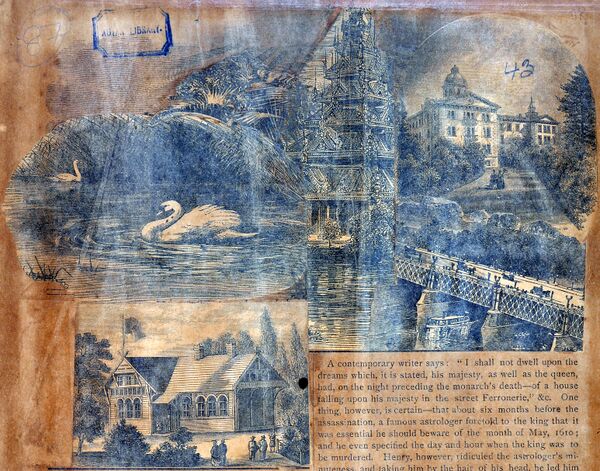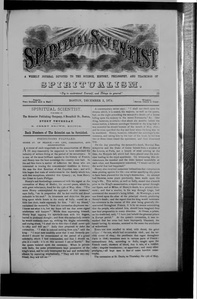Predictions Fulfilled
An event of such magnitude as the assassination of Henry IV. may reasonably be expected to have exercised the industry of writers living at the period of its occurrence. It is one of the most brilliant epochs in the history of France, and Henry was the best sovereign the country ever had. In his sad fate there is matter of reflection for those who are interested in tracing the concatenated fatalities in history. He was the first Bourbon of the Capetian race; and with him began that train of misfortunes to the family which has, with few exceptions, attended this dynasty; or, from Henry the Great to Louis Philippe.
Henry’s sad forebodings commenced with his regret at the coronation of Mary of Medici, his second queen, which he, with great reluctance, fixed for the 13th of May, 1610. “The more Henry contemplated the approach of that moment,” says Sully, “so in proportion did he feel trouble and dread redouble in his soul.” In bitterness and dejection the poor king spent whole hours in the study of Sully, seated on a little low chair, made expressly for him. “Ah! my friend," exclaimed the monarch, “how this coronation displeases me! I know not what it is, but my fears tell me that some signal misfortune will happen.” While thus expressing himself, Henry kept tapping his spectacle-case with his fingers, buried in profound thought; and from this melancholy reverie he would suddenly start up, striking his thighs vehemently, and crying aloud, “I shall die in this city—I shall never quit it—they will kill me!” Sully then proposed to defer the coronation. “I wish to conceal nothing from you,” said the king: “I must now candidly avow that it was formerly predicted I should be assassinated at the period of a grand solemnity, which I had commanded, and that I should expire in a coach: it is on this account I am so fearful.” But the queen insisted upon the ceremony. When in private with Sully, the same presentiments kept possession of the king’s mind, and he only interrupted the sad and melancholy silence by repeating emphatically, “They will kill me—my friend, they will kill me!”
A contemporary writer says: “I shall not dwell upon the dreams which, it is stated, his majesty, as well as the queen, had. on the night preceding the monarch's death—of a house falling upon his majesty in the street Ferrooerie,” &c. One thing, however, is certain—that about six months before the assassination, a famous astrologer foretold to the king that it was essential he should beware of the month of May, 1610; and he even specified the day and hour when the king was to be murdered. Henry, however, ridiculed the astrologer's minuteness, and taking him by the hair of his head, he led him two or three times round the apartment, and then dismissed him.
On the day preceding the monarch's death. Marshal Bassompierre and the Duke of Guise beheld from a window of the Louvre, at Paris, not a breath of wind stirring at the time, the Maypole fall, which had been placed near the staircase leading to the royal apartment. On witnessing this circumstance, the marshal and the duke looked mournfully at each other, and Bassompierre remarked, “I would not for ail the world that had happened.”
Henry also received numerous intimations that conspiracies were plotting against his life—one writer specifying fifty plots to have been planned for the king’s destruction. An attempt had likewise, some years previously, been made upon the king's life. This writer, as well as Sully, stated that a month prior to the King's assassination, a report was spread throughout Spain, and at Milan, of Henry's death, in a printed document; and that a courier, in his way through Liege, had announced the monarch’s being killed. At Montargis, a note was found upon the altar of the principal church, predicting Henry’s death; and the report that the king would terminate his existence in the course of this year being generally disseminated throughout France, it is by no means astonishing that the people, who adored him, should have imagined they saw fatal prognostics in every direction. At Douse, a priest, on his death-bed. said, “I have just beheld the greatest prince in Europe perish.” At the queen’s coronation, it was remarked that her arms had been improperly blazoned, the herald having, by mistake, annexed to the same the attributes of widowhood.
Every one now recalled to mind, with dread, the great eclipse of the sun, which had occurred in 1608; and the terrible comet of 1609; the pestilence that raged throughout Paris in 1606; monsters seen in various parts of France; extraordinary fish, according to Sully, caught upon the French coast; showers of blood, that is rain, of a reddish color; singular inundations; an apparition; and many other prodigies,—all kept men in fear of some horrible catastrophe.
The coronation at St. Denis, on Thursday, the 13th of May, <... continues on page 3-86 >
Editor's notes


